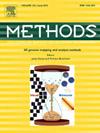MPEMDA:一种具有预补全和误差校正的多相似性集成方法用于预测微生物与药物的关联。
IF 4.2
3区 生物学
Q1 BIOCHEMICAL RESEARCH METHODS
引用次数: 0
摘要
探索微生物和药物之间的联系为其潜在机制提供了有价值的见解。传统的湿实验室实验,虽然可靠,但往往是耗时和劳动密集型的,使计算方法成为一个有吸引力的选择。现有用于预测微生物-药物关联的基于相似性的机器学习模型通常依赖于综合相似性作为输入,忽略了个体相似性的独特贡献,这可能会损害预测的准确性。为了克服这些限制,我们开发了MPEMDA,这是一种使用各种相似性组合预完成微生物-药物关联矩阵的新方法,并采用带有纠错的标签传播算法来预测微生物-药物关联。与现有方法相比,MPEMDA同时利用相似性网络融合(Similarity Network Fusion, SNF)方法获得的综合相似性和个体相似性对已知药物-微生物关联矩阵进行预补,并进行误差修正,优化标签传播算法生成的预测分数。在三个基准数据集上的实验结果表明,MPEMDA在5倍交叉验证和从头检验中都优于最先进的方法。此外,药物和微生物的案例研究强调了该方法在识别新的微生物-药物关联方面的强大潜力。MPEMDA代码可从https://github.com/lyx8527/MPEMDA获得。本文章由计算机程序翻译,如有差异,请以英文原文为准。
MPEMDA: A multi-similarity integration approach with pre-completion and error correction for predicting microbe-drug associations
Exploring the associations between microbes and drugs offers valuable insights into their underlying mechanisms. Traditional wet lab experiments, while reliable, are often time-consuming and labor-intensive, making computational approaches an attractive alternative. Existing similarity-based machine learning models for predicting microbe-drug associations typically rely on integrated similarities as input, neglecting the unique contributions of individual similarities, which can compromise predictive accuracy. To overcome these limitations, we develop MPEMDA, a novel method that pre-completes the microbe-drug association matrix using various similarity combinations and employs a label propagation algorithm with error correction to predict microbe-drug associations. Compared with existing methods, MPEMDA simultaneously utilizes the integrated and individual similarities obtained through the Similarity Network Fusion (SNF) method to pre-complete the known drug-microbe association matrix, followed by error correction to optimize the predictive scores generated by the label propagation algorithm. Experimental results on three benchmark datasets show that MPEMDA outperforms state-of-the-art methods in both the 5-fold cross-validation and de novo test. Additionally, case studies on drugs and microbes highlight the method's strong potential to identify novel microbe-drug associations. The MPEMDA code is available at https://github.com/lyx8527/MPEMDA.
求助全文
通过发布文献求助,成功后即可免费获取论文全文。
去求助
来源期刊

Methods
生物-生化研究方法
CiteScore
9.80
自引率
2.10%
发文量
222
审稿时长
11.3 weeks
期刊介绍:
Methods focuses on rapidly developing techniques in the experimental biological and medical sciences.
Each topical issue, organized by a guest editor who is an expert in the area covered, consists solely of invited quality articles by specialist authors, many of them reviews. Issues are devoted to specific technical approaches with emphasis on clear detailed descriptions of protocols that allow them to be reproduced easily. The background information provided enables researchers to understand the principles underlying the methods; other helpful sections include comparisons of alternative methods giving the advantages and disadvantages of particular methods, guidance on avoiding potential pitfalls, and suggestions for troubleshooting.
 求助内容:
求助内容: 应助结果提醒方式:
应助结果提醒方式:


